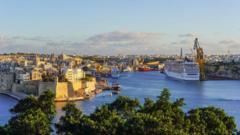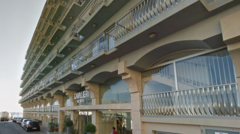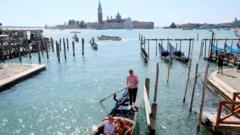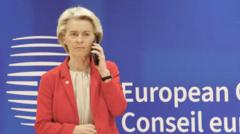In a landmark ruling, the EU's Court of Justice has declared that Malta's controversial golden passport scheme, which allows individuals to gain citizenship through significant financial investment, is in violation of European law. The legal challenge was initiated by the European Commission in 2022, leading to a decisive verdict that has far-reaching implications for Malta's immigration policies and financial stability.
Malta's Golden Passport Scheme Violates EU Law, Court Declares

Malta's Golden Passport Scheme Violates EU Law, Court Declares
The EU's top court rules against Malta's citizenship-by-investment program, raising compliance concerns.
The court's judgment deemed that the program, which requires applicants to pay at least €600,000, along with property investments and charitable donations, essentially facilitates the acquisition of nationality as a commercial transaction. This undermines the principles laid out in EU treaties about citizenship, reinforcing the notion that nationality should not be treated as a commodity.
Malta's government, yet to respond formally to the ruling, has faced criticism, especially from former Prime Minister Joseph Muscat, who labeled the decision as politically motivated. Despite past assertions of compliance with EU norms, Malta may risk substantial fines if it fails to align its practices with the court's directive.
The ruling also addressed concerns that such investor citizenship programs could pose security risks, potentially enabling money laundering and other illicit financial activities. While individual nations maintain the right to regulate their citizenship protocols, the court underlined that Malta's approach could undermine trust among member states. The implications of this ruling may prompt a reevaluation of how ethical citizenship practices are orchestrated in the European Union. Additionally, the court's decision overturns earlier statements from its Advocate General, suggesting that it is ultimately the prerogative of member states to define their national identity criteria, as underscored by Malta's insistence on its autonomy regarding citizenship laws.
As Malta contemplates the future of its citizenship program, it must navigate the complexities of adhering to EU law and addressing the concerns raised regarding financial schemes associated with national citizenship, all while managing its standing within the broader European community.
In a prior development, Malta had paused the golden passport scheme for nationals from Russia and Belarus after geopolitical tensions rose due to Russia's actions, highlighting the dynamic nature of the scheme's implementation amid international criticism.
Malta's government, yet to respond formally to the ruling, has faced criticism, especially from former Prime Minister Joseph Muscat, who labeled the decision as politically motivated. Despite past assertions of compliance with EU norms, Malta may risk substantial fines if it fails to align its practices with the court's directive.
The ruling also addressed concerns that such investor citizenship programs could pose security risks, potentially enabling money laundering and other illicit financial activities. While individual nations maintain the right to regulate their citizenship protocols, the court underlined that Malta's approach could undermine trust among member states. The implications of this ruling may prompt a reevaluation of how ethical citizenship practices are orchestrated in the European Union. Additionally, the court's decision overturns earlier statements from its Advocate General, suggesting that it is ultimately the prerogative of member states to define their national identity criteria, as underscored by Malta's insistence on its autonomy regarding citizenship laws.
As Malta contemplates the future of its citizenship program, it must navigate the complexities of adhering to EU law and addressing the concerns raised regarding financial schemes associated with national citizenship, all while managing its standing within the broader European community.
In a prior development, Malta had paused the golden passport scheme for nationals from Russia and Belarus after geopolitical tensions rose due to Russia's actions, highlighting the dynamic nature of the scheme's implementation amid international criticism.



















